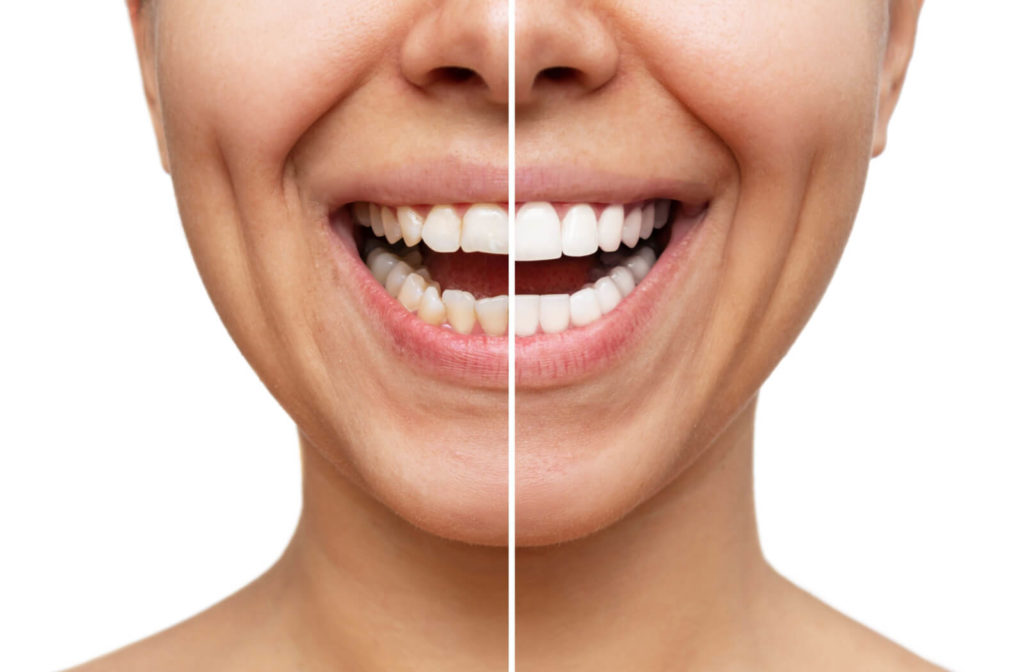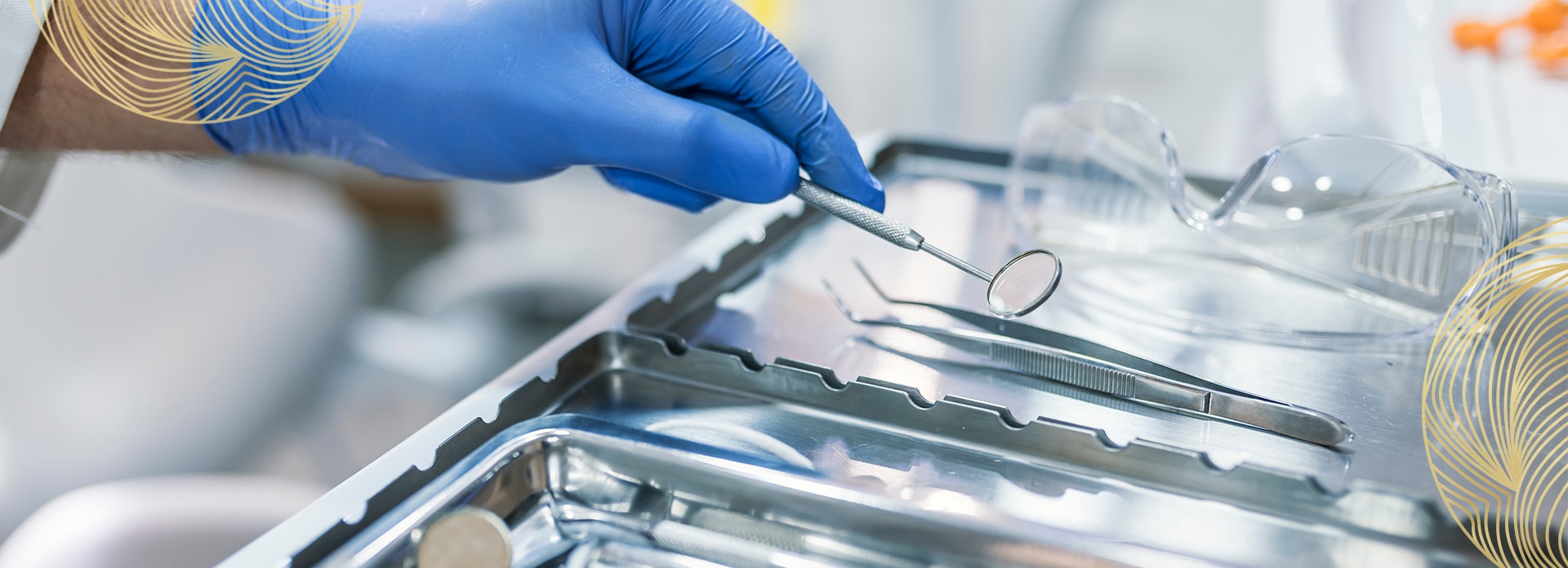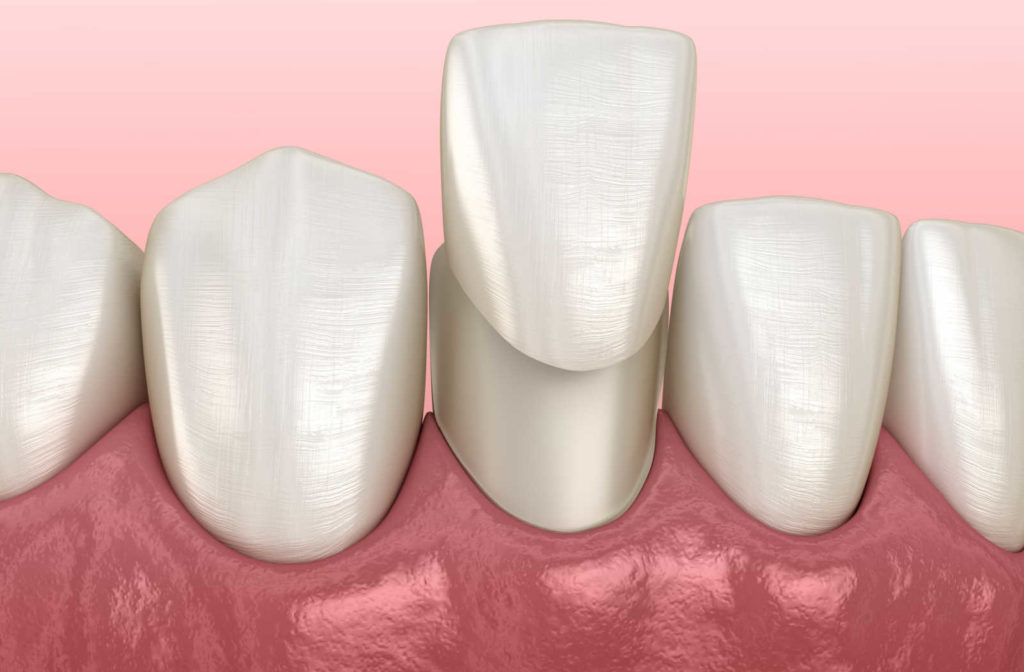Veneers are a popular option in cosmetic dentistry that can correct perceived smile imperfections. Veneers can be a great choice if you want to improve the appearance of your teeth or have a brighter, more radiant smile.
The issue of staining is a common concern when considering veneers. Natural teeth can stain from a variety of sources, including:
- Food and drink
- Tobacco
- Aging
As a result, the question of whether veneers stain is commonly raised, and the answer depends on the type of material the veneers are made out of.
Porcelain veneers are a popular option for those seeking a natural smile. Porcelain veneers do not absorb colour from food, drink, or other sources the way natural teeth do, allowing them to remain bright and white for many years.
So, do veneers stain? In short, it is determined by the type of veneer used. If you choose porcelain veneers, you can be confident that they will not stain like natural teeth.
What Are Veneers?
Veneers are a cosmetic dentistry option that can significantly improve the appearance of your smile. They are thin porcelain or composite resin shells that are bonded to the front surface of your teeth, effectively masking any perceived flaws or imperfections.
One of the benefits of veneers is that they can be used to treat as few as one tooth or as many as 28 teeth, depending on your specific needs. Because of their versatility, veneers are a popular choice for people who want to improve the appearance of their smile.
In addition to an amazing smile, you may be considering veneers for another reason. Here are a few common ones:
- Tooth discolouration: Veneers can brighten your smile.
- Chipped or broken teeth: Veneers can be used to cover up small chips or cracks in your teeth, helping to restore their appearance and strength.
- Crowded teeth or excessive spacing: Veneers can be used to create a more balanced, symmetrical smile if your teeth are crowded or there is too much space between them.
- Small teeth: Veneers can be used to make your teeth appear larger and more proportional to your other teeth if they are naturally small or have become smaller due to age or other factors.
- Asymmetric smile: Veneers can be used to create a more balanced and symmetrical smile if your teeth are not evenly spaced or aligned.
- Replacing older dentistry: Veneers can be used to replace older dentistry and last for 10+ years, providing you with a long-lasting and healthy smile.
- Rotated teeth: Veneers allows your dentist to reshape your rotated teeth, having it face the right and align your smile.

What Are the Types of Veneers?
There are 2 main types of veneers to choose from:
- Porcelain or ceramic veneers
- Composite or plastic veneers
Each type has advantages and disadvantages, and the best option for you will be determined by your specific needs and preferences.
Porcelain veneers, also known as ceramic veneers, are created by bonding a thin layer of porcelain to the front surface of your teeth.
Porcelain veneers are popular because of their natural tooth-like appearance and durability, making them a popular choice for those looking for a bright, white smile that can last for years.
Composite veneers, also known as plastic veneers, are made of a composite resin material that is moulded and shaped directly on your teeth’s surface. Composite veneers are less expensive than porcelain veneers, but they may not be as durable or long-lasting.
At Cooper Dental, we believe that porcelain veneers are the best option for our patients. Because of their natural tooth appearance and durability (made by a laboratory technician), porcelain veneers can provide a beautiful, long-lasting smile.
We’re here to help you find the right veneers to meet your needs, whether you want to correct a specific issue or improve the appearance of your smile.
The Veneer Process
The veneer process is intended to help you achieve your smile goals in just a few dental visits.
- The first step is to schedule a consultation with your dentist, who will examine your teeth and advise you on whether veneers are the best option for your smile goals.
- If veneers are the best option for you, your dentist will take a 3D scan of your teeth, which will be sent to a dental laboratory.
- Following that, your dentist will prepare your teeth for veneers and take an impression to aid in the creation of the final veneers.
- Temporary veneers may be placed on your teeth during this stage to protect them while the final veneers are being created.
- When the final veneers are ready, your dentist will apply and bond them to your teeth. You will be able to leave the dentist’s office with your brand-new smile!
Can Veneers Stain?
One of the primary advantages of porcelain veneers is that they do not stain like natural teeth. This is because porcelain is a non-porous, highly glazed material that is smooth enough that debris will not stick to it.
Furthermore, porcelain does not absorb common teeth-staining foods and beverages such as coffee and wine, which can cause discoloration in natural teeth.
As a result, porcelain veneers are a long-lasting smile solution that can help you keep your bright, white smile for many years.
Composite veneers, on the other hand, can stain like natural teeth because they are made of plastic. While composite veneers are less expensive, they may not be as long-lasting or durable as porcelain veneers and may discolour over time.
Can You Whiten Veneers?
Traditional whitening methods are not recommended for veneers—veneers, unlike natural teeth, do not change colour and cannot be whitened with products such as whitening toothpaste or strips.
However, it’s still necessary to practice good oral hygiene habits to keep your veneers looking their best. Brushing and flossing your veneers as you would natural teeth helps to keep the gums and underlying teeth healthy.
Regular dental exams and cleanings are also necessary to maintain the health and appearance of your veneers. Your dentist can inspect the veneers for signs of damage and ensure that they are securely bonded to your teeth.
Achieve Your Desired Smile
If you want to improve the appearance of your smile, veneers could be the answer. A consultation with Cooper Dental is the best way to find out what is best for you. We’ll assess your specific needs and recommend the best solution for your teeth and smile goals.





